Photos/Pics of National Heroes
Printed From: History Community ~ All Empires
Category: General History
Forum Name: Historical Pictures Gallery
Forum Discription: Post and discuss images of historical places, arts and maps...
URL: http://www.allempires.com/forum/forum_posts.asp?TID=3552
Printed Date: 20-Apr-2024 at 10:38
Software Version: Web Wiz Forums 9.56a - http://www.webwizforums.com
Topic: Photos/Pics of National Heroes
Posted By: Guests
Subject: Photos/Pics of National Heroes
Date Posted: 23-May-2005 at 11:33
| Post here any photos, pictures, even miniatures of your national, or historical leaders', heroes'. And maybe their biographies... |
Replies:
Posted By: TheodoreFelix
Date Posted: 23-May-2005 at 16:02
|
GJERGJ KASTRIOTI "SKANDERBEG" His bio can be found here: http://www.allempires.com/forum/forum_posts.asp?TID=1801& ; ;PN=1 - http://www.allempires.com/forum/forum_posts.asp?TID=1801& ; ; ;PN=1
ALI PASHA TEPELENA
------------- |
Posted By: TheOrcRemix
Date Posted: 23-May-2005 at 22:26
 ------------- True peace is not the absence of tension, but the presence of justice. Sir Francis Drake is the REAL Pirate of the Caribbean |
Posted By: Quetzalcoatl
Date Posted: 24-May-2005 at 01:12
|
Heroes Joan of Arc
Brennus
Charlemagne
Napoleon
Louis XIV
D'Artagnan
Charles Martel
Guillaume le conquerant (Willian the conquerer)
Charles De Gaulle
------------- |
Posted By: Frederick Roger
Date Posted: 24-May-2005 at 05:39
|
D'Artagnan?? ------------- |
Posted By: Quetzalcoatl
Date Posted: 24-May-2005 at 18:46
|
Yep D'Artagnan was a real musqueteer, he was killed in action somewhere in a siege. After he was ressurected by french revolution writers he became rather a national hero during that period. So I think it is fitting here, he is a mixture of myths and reality though. ------------- |
Posted By: Guests
Date Posted: 24-May-2005 at 19:27
according to many Dutch people it's this one: I want to get out of here. ------------- |
Posted By: strategos
Date Posted: 24-May-2005 at 21:27
|
I laugh at Degaul.. I read once that he thought the Liberation of Paris was all his doing, never giving much credit to the Americans who actually liberated most of France. ------------- http://theforgotten.org/intro.html |
Posted By: Jalisco Lancer
Date Posted: 24-May-2005 at 23:02

Jose Maria Morelos y Pavon 
Benito Pablo Juarez Garcia 
General Ignacio Seguin Zaragoza 
Emiliano Zapata Salazar 
General Jose Doroteo Arango Arambula aka Pancho Villa 
General Lazaro Cardenas Del Rio ------------- |
Posted By: Sarmata
Date Posted: 25-May-2005 at 17:00
Stanislaw Zolkiewski, conqueror of Moscow.

Janosik, The Polish Robin Hood, though it's still a dispute wether he was Polish or Slovakian. As a Pole I was raised to believe he was Polish. 
Tadeusz Kosciuszko 
Jozef Poniatowski, a Marshal of France during Napoleonic times, as well as the Military leader of the Duchy of Warsaw. If only his uncle was more like him... 
Romuald Traugutt, the leader of the 1863 uprising 
Ignacy Pradzynski, one of the leaders of the uprising in 1831, he was responsible for the beautiful victory at the battle of Iganiami. 
Jozef Pilsudski, the man who resurrected Poland, the Victor over Soviet Russia at Radzymin. 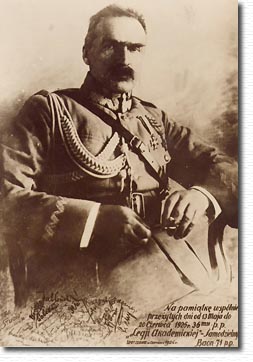
Im sure there's more that i missed out, however those are main ones for me |
Posted By: Tobodai
Date Posted: 26-May-2005 at 02:11
|
Alexander Hamilton-set up a strong economy so that America could survive its early years
Benjamin Franklin-advocate for science, reason, and liberty
Thomas Paine- ultimate libertarian, my self in a past life
Ayn rand , born in Russia, great anti communist and atheist ------------- "the people are nothing but a great beast... I have learned to hold popular opinion of no value." -Alexander Hamilton |
Posted By: Tobodai
Date Posted: 26-May-2005 at 02:59
|
oh and how could I forget! My favorite president ever!
Teddy Roosevelt-the man who made the presidency soemthing that didnt suck, for a breif time at least.
And while Im at it, might as well post heroes from the OTHER country my ancestors come from:
Oda Nobunaga: killed those idiotic warrior monks to the last, hence insuring the end of their dominance, and a brilliant general
Ieyasu: unified Japan and began the persecution that rid Japan of the plague of Jesuits, enshuring no daiymo could either rebel or use foreign religions to destabilize the country.
Ito Horobumi, responsible more than anyone for Japans rabit political and industrial modernization Heihachiro Togo crushed the Russians in two major battles. ------------- "the people are nothing but a great beast... I have learned to hold popular opinion of no value." -Alexander Hamilton |
Posted By: Gazi
Date Posted: 26-May-2005 at 03:33
|
------------- Freedom is the recognition of necessity.-Friedrich Engels |
Posted By: Guests
Date Posted: 26-May-2005 at 11:03
|
Gazi, unfortunately, non of your pics can be seen. Please try the upload or add image links on the right top of the posting screen... ------------- |
Posted By: JiNanRen
Date Posted: 26-May-2005 at 15:33
 Yang Li Wei-First Chinese man in space  Liu Xiang-First Asian to break a world record in track and field  Lei Feng-A true communist era hero  Sun Yat-sen |
Posted By: eaglecap
Date Posted: 26-May-2005 at 15:43

modern day patriot!! 
Michael Savage 
A great patriot to the Nez Perz and a great man in our history. I have spent time in his beloved Wallowa Valley. It is one of the most beautiful places I have been to and I have traveled. 
|
Posted By: Alparslan
Date Posted: 27-May-2005 at 02:42
|
Who is he? |
Posted By: Frederick Roger
Date Posted: 27-May-2005 at 05:24
|
That's Pim Fortuyn (not sure I spelled correctly). A gay far-right leader who was shot when on the verge of becoming Prime-Minister of Holland. ------------- |
Posted By: Jagatai Khan
Date Posted: 27-May-2005 at 08:33
|
Polat Alemdar-Baron of the Wolves' Council
By the way,was Tepedelenli Ali Pasha Albanian? ------------- |
Posted By: akżncż
Date Posted: 27-May-2005 at 09:44
|
Kara murat,fatihin fedisi and Tarkan,the lonely warrior these are real heroes and role models ------------- "I am the scourage of god appointed to chastise you,since no one knows the remedy for your iniquity exept me.You are wicked,but I am more wicked than you,so be silent!" |
Posted By: JiNanRen
Date Posted: 27-May-2005 at 11:31
My personal heroes: Jet Li  |
Posted By: Guests
Date Posted: 27-May-2005 at 12:06
|
I will begin posting some of our and other nations' national heroes, with one of my favourites, Fatih Sultan Mehmed II Khan (Mehmed II the Conquerer)...
His portraits...
Conquest of Istanbul...
------------- |
Posted By: vulkan02
Date Posted: 29-May-2005 at 11:58

------------- The beginning of a revolution is in reality the end of a belief - Le Bon Destroy first and construction will look after itself - Mao |
Posted By: Guests
Date Posted: 29-May-2005 at 13:47
|
Who is he? Is he really Kanunī Sultan Suleyman Khan? But surely, he wasnt blonde.
------------- |
Posted By: Tobodai
Date Posted: 29-May-2005 at 23:40
|
maybe he dyed it? Well according to some semi historical games about Chinese power struggles the ancient had purple tendrils fo hair? ------------- "the people are nothing but a great beast... I have learned to hold popular opinion of no value." -Alexander Hamilton |
Posted By: vulkan02
Date Posted: 30-May-2005 at 02:22
lol no his name is Lek Dukagjini ... he actually fought against the Turks with Scanderbeg but he is revered today especially in northern Albania for making certain laws to guide highlander Albanian society. Hence he has the kanun in his hand or ligj in Albanian. Sorry the pic came out to be so big  ------------- The beginning of a revolution is in reality the end of a belief - Le Bon Destroy first and construction will look after itself - Mao |
Posted By: eaglecap
Date Posted: 30-May-2005 at 02:28
|
childhood hero
Coanan the Barbarian!!  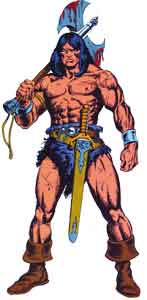
|
Posted By: giani_82
Date Posted: 30-May-2005 at 04:26
|
Images of Vasil Levski - Bulgarian revolutionary and national hero ------------- "Our greatest glory is not in never falling, but in rising everytime we fall." Confucius |
Posted By: Guests
Date Posted: 30-May-2005 at 10:29
|
Yeah, I was one of his fans. The interesting thing about him was he was a Turanian... ------------- |
Posted By: Mosquito
Date Posted: 01-Jun-2005 at 17:21
He was Cymmerian. |
Posted By: Jorsalfar
Date Posted: 01-Jun-2005 at 17:41
| From Cimmeria |
Posted By: köroglu
Date Posted: 02-Jun-2005 at 22:00
 ------------- |
Posted By: mark1100
Date Posted: 04-Jun-2005 at 08:02
Desert Fox Erwin Rommel Bismarck  Goethe (looks exactly like my grandfather)  |
Posted By: Raider
Date Posted: 08-Jun-2005 at 03:24
|
There are some Hungarian national heroes: Duke Įrpįd the conqueror of Pannonia: http://hungaria.org/uploaded/images/20030419-203037.jpg - http://hungaria.org/uploaded/images/20030419-203037.jpg Saint Stephen, the first king and apostle of Hungary: http://www.idg.hu/expo/hosok_tere/korona/kep/kr_1.jpg - http://www.idg.hu/expo/hosok_tere/korona/kep/kr_1.jpg King Matthias the Just: http://www.idg.hu/expo/hosok_tere/korona/kep/kk_mat1.jpg - http://www.idg.hu/expo/hosok_tere/korona/kep/kk_mat1.jpg Istvįn Széchenyi called the greatest of all hungarians: http://hungary.ciw.edu/1848-49/images/szech.jpg - http://hungary.ciw.edu/1848-49/images/szech.jpg Imre Nagy a revolutionary prime minister: |
Posted By: GENERAL PARMENION
Date Posted: 08-Jun-2005 at 09:12
|
CONSTANTINOS PALEOLOGOS , LAST GREEK EMPEROR
"Constantinos Paleologos at the battlements, dawn of the 29th May of 1453"
"The last moments of Const. Paleologos, emperor of Byzantium" ------------- "There is no doubt, that Macedonians were Greeks." (Robin Lane Fox "Historian-Author" In Interview with newspaper TO BHMA) |
Posted By: Jagatai Khan
Date Posted: 08-Jun-2005 at 15:24
|
wow,this pics reminds me Minas Tirith!
by the way,he was one of the most open-minded Ottoman Sultans and my favourite:
SULTAN II. MAHMUD KHAN / EMPEREUR OTHOMANE 1808-1839 ------------- |
Posted By: Sanimideg
Date Posted: 08-Jun-2005 at 15:25
------------- SRBIJA DO TOKIJA! |
Posted By: Komnenos
Date Posted: 08-Jun-2005 at 18:38
I like this chap as well, and I think he deserves better than those kitschy childrens' book illustrations above: Here are a few contemporary pictures: 

 ------------- [IMG]http://i71.photobucket.com/albums/i137/komnenos/crosses1.jpg"> |
Posted By: OSMANLI
Date Posted: 09-Jun-2005 at 07:23
|
Turkish Cypriot Hero
Pakistani Hero
Eastern Turkistan Hero
-------------  
|
Posted By: Sanimideg
Date Posted: 09-Jun-2005 at 10:35
------------- SRBIJA DO TOKIJA! |
Posted By: ArmenianSurvival
Date Posted: 09-Jun-2005 at 18:45
|
Just a few of Armenia's heroes: St. Vartan Mamikonian. General of Armenian Army who, in 451 A.D., fought against the Zoroastrian Persian Army who were trying to convert Armenians to Zoroastrianism. He was killed in the battle of Avarayr in 451, and the war went on for 33 years. In the end, the original 300,000 Persian forces retreated from Armenia and granted them religious freedom. Our greatest victory against the mighty Persian empire belongs to the bravery of St. Vartan Mamikonian.  General Andranik, who led the Armenian defense against Ottoman forces during the WWI genocide.  Monte Melkonian. Born in Fresno,California, and volunteered to fight the Azeris in Karabagh during the war. He rose to the status of general and comandeered the Armenian forces to victory in numerous battles, eventually winning the war.  Tigranes the Great. Ruled from 95-55 B.C. Created the only Armenian Empire in history. After Mithridates of Pontus was defeated by the Romans, Tigranes won victories against Rome and gave Mithridates his Kingdom back. He was eventually defeated in 65 B.C. by the dual attack of Pompey from the west and the Persians to the east.  The great Andre Agassi:  Singer Cher Sarkissian:  Current world chess champion Gary Kasparov (Kasparian):  Pullitzer Prize winning author William Saroyan. Considered to be one of the 5 greatest American writers of all time. 
 Rock band System of a Down. Their self-titled first album went platinum. Their second album Toxicity went 5 times platinum. Their third album Steal This Album! went platinum. Their new album Mezmerize, which came out on May 17th, debuted at #1 on the billboard charts and went platinum its first week. They push for recognition of the Armenian genocide by making it aware to the public, and have also helped raise hundreds of thousands of dollars to various human rights organizations, most of which are non-Armenian.Their music has been branded "thinking-man's metal".  Many more Armenian heroes. Ill post more later. ------------- Mass Murderers Agree: Gun Control Works! http://en.wikipedia.org/wiki/Van_Resistance ÕÕ«Õ¹ Õ„Õ¶Ö Õ¢Õ”ÕµÖ ÕÕ”Õµ Õ„Õ¶ÖÖ |
Posted By: GENERAL PARMENION
Date Posted: 10-Jun-2005 at 07:41
Those pictures are called....ART !! ------------- "There is no doubt, that Macedonians were Greeks." (Robin Lane Fox "Historian-Author" In Interview with newspaper TO BHMA) |
Posted By: Komnenos
Date Posted: 10-Jun-2005 at 17:01
Na, this is ....ART! Can you see the difference! 
Josef Beuys, Der Fettstuhl ( The Fatchair ) ------------- [IMG]http://i71.photobucket.com/albums/i137/komnenos/crosses1.jpg"> |
Posted By: GENERAL PARMENION
Date Posted: 10-Jun-2005 at 17:08
|
Art is rather a relavant term. ------------- "There is no doubt, that Macedonians were Greeks." (Robin Lane Fox "Historian-Author" In Interview with newspaper TO BHMA) |
Posted By: Quetzalcoatl
Date Posted: 12-Jun-2005 at 21:30
|
i've always thought Agassi was from iran. He said his father was iranian. ------------- |
Posted By: ArmenianSurvival
Date Posted: 12-Jun-2005 at 22:00
|
His father was an Armenian from Iran. Agassi was born in the States.
------------- Mass Murderers Agree: Gun Control Works! http://en.wikipedia.org/wiki/Van_Resistance ÕÕ«Õ¹ Õ„Õ¶Ö Õ¢Õ”ÕµÖ ÕÕ”Õµ Õ„Õ¶ÖÖ |
Posted By: vulkan02
Date Posted: 12-Jun-2005 at 23:22
|
llol ok but how is he a Armenian national hero??? its like me saying John Belushi is an Albanian national hero just because he was a good actor. ------------- The beginning of a revolution is in reality the end of a belief - Le Bon Destroy first and construction will look after itself - Mao |
Posted By: ArmenianSurvival
Date Posted: 13-Jun-2005 at 00:30
|
The military heroes are the real national heroes. The other ones are just great achievers and honorable mentions. ------------- Mass Murderers Agree: Gun Control Works! http://en.wikipedia.org/wiki/Van_Resistance ÕÕ«Õ¹ Õ„Õ¶Ö Õ¢Õ”ÕµÖ ÕÕ”Õµ Õ„Õ¶ÖÖ |
Posted By: Guests
Date Posted: 13-Jun-2005 at 08:23
|
Oguz Kaghan, or Oguz Khan, the ancestor and the savior of the Oguz Turks, and today's Turkmens, Uighurs, Azeris and Anatolian Turks...
Oguz Khan myth is shaped around the life of Hun ruler Mete, who was the ruler of between the years 209-174 BC. As in all the Turkish myths, the original form of this myth did not survive our day.Today, we have three variants of Oguz myth. The variant, inscribed in Uighur (Uygur) alphabet between 13th-16th centuries, which reflects the beliefs before Islam, is accepted to be the original form. The Persian Oguz Khan Myth, included in Cami üt-Tevarih by Reshideddin, known to be written at the beginning of 16th century, represents the first Islamic variant.The third variant of the Oguz Khan myth was formed by Ebu'l-Gazi Bahadżr Khan in 17th century as based on the passing on and the previous writings among Turkmen. One day, Ulug Bey, the wise vizier of Oguz Khan, dreamt of one golden bow and three silver arrows. The golden bow extended from the east to west. Three silver arrows went to the north. When Oguz Khan heard of this dream, he divided the country between his sons.
------------- |
Posted By: Jagatai Khan
Date Posted: 13-Jun-2005 at 13:52
|
so Armenians please put Tthe photos of your militarical heroes;like the leaders of ASALA. ------------- |
Posted By: akżncż
Date Posted: 13-Jun-2005 at 14:05
|
General Andranik, who led the Armenian defense against Ottoman forces during the WWI genocide. what genocide?andranik was the general of civilian troops who battled aaginst the terrible turk? ------------- "I am the scourage of god appointed to chastise you,since no one knows the remedy for your iniquity exept me.You are wicked,but I am more wicked than you,so be silent!" |
Posted By: ArmenianSurvival
Date Posted: 13-Jun-2005 at 19:58
This is a place to post national heroes. If you want to discuss ASALA, theres a bunch of other threads to do it in.
You should know by now that Armenians and Turks have different takes on history. ------------- Mass Murderers Agree: Gun Control Works! http://en.wikipedia.org/wiki/Van_Resistance ÕÕ«Õ¹ Õ„Õ¶Ö Õ¢Õ”ÕµÖ ÕÕ”Õµ Õ„Õ¶ÖÖ |
Posted By: Thegeneral
Date Posted: 13-Jun-2005 at 20:55
|
I'd don't really feel like finding all of America's heros right now, but there are a lot. So far the only hero of a country so far that seems apropriate to me is Erwin Rommel and possibly Bismarck, but I also don't know who most of the others are. |
Posted By: Guests
Date Posted: 14-Jun-2005 at 03:59
|
I dont think you would be very pleased if I post here tens of photos of Talat Pasha...
But dont worry, I dislike him as much as you dislike him. He caused more Turks to die and suffer than Armenians. This thread is to post photos of national heroes, not national butchers... ------------- |
Posted By: akżncż
Date Posted: 14-Jun-2005 at 06:34
|
Current world chess champion Gary Kasparov (Kasparian): he was armenian? ------------- "I am the scourage of god appointed to chastise you,since no one knows the remedy for your iniquity exept me.You are wicked,but I am more wicked than you,so be silent!" |
Posted By: akżncż
Date Posted: 14-Jun-2005 at 06:36
|
yes but what you said made no sense,ow can a general lead his troops against a genocide?a pogrom maybe... ------------- "I am the scourage of god appointed to chastise you,since no one knows the remedy for your iniquity exept me.You are wicked,but I am more wicked than you,so be silent!" |
Posted By: akżncż
Date Posted: 14-Jun-2005 at 06:42
|
and armenian survival,you are historically wrong,he did not fight against the genocide,he fought against the deportation(and armenians say it also) ------------- "I am the scourage of god appointed to chastise you,since no one knows the remedy for your iniquity exept me.You are wicked,but I am more wicked than you,so be silent!" |
Posted By: vulkan02
Date Posted: 14-Jun-2005 at 09:35
|
i thought kasparov was from azerbaijan ------------- The beginning of a revolution is in reality the end of a belief - Le Bon Destroy first and construction will look after itself - Mao |
Posted By: Zagros
Date Posted: 14-Jun-2005 at 15:56
|
His dad's name was Mohamad (and changed his name to Mike in America, typical Iranian American thing to do). I have never known an Armenian with an Islamic name, not in Iran not out of Iran and I had many Armenian Iranian friends, they had names like Albert and Paul. Armenians automatically assume he is Armenian just because his dad was Christian, but he could have converted and probably did for all they know as many Iranians did at the start of last century. He recently said that he wished he learned Persian as a child, why Persian and not Armenian? http://www.payvand.com/news/03/dec/1094.html - http://www.payvand.com/news/03/dec/1094.html I am open to him being any ethnicity but where does him being Armenian come from? Also, Assyrians seem to think he is Assyrian ------------- |
Posted By: Artaxiad
Date Posted: 15-Jun-2005 at 17:27
|
His father's real name was not Mohamad. It was Emmanuel. Agassi is an ethnic Armenian and Assyrian. http://en.wikipedia.org/wiki/Agassi - http://en.wikipedia.org/wiki/Agassi
He was born in Azerbaijan to Armenian-Jewish parentage. http://en.wikipedia.org/wiki/Kasparov - http://en.wikipedia.org/wiki/Kasparov |
Posted By: Murtaza
Date Posted: 15-Jun-2005 at 17:53
|
He is Turk? Just curious when Greeks will join with party. |
Posted By: Zagros
Date Posted: 15-Jun-2005 at 17:59
|
That's the name he boxed under for Iran in 1948 - He is half American anyway. And his surname is pronounced Aghassi with qaf/ghayn not g, but when pronounced in english it is substituted with a g. Is that an Armenian name? How many other Armenians with the name Aghassi? There are thousands of Iranians with that name. Do you have any actual biographical source that states he is Armenian? I am not disputing, I just have doubts. ------------- |
Posted By: akżncż
Date Posted: 17-Jun-2005 at 13:49
I wonder if he even knows he is assyrian? ------------- "I am the scourage of god appointed to chastise you,since no one knows the remedy for your iniquity exept me.You are wicked,but I am more wicked than you,so be silent!" |
Posted By: vulkan02
Date Posted: 17-Jun-2005 at 18:19
Arpad: High Prince of the Magyars - national hero of hungary ------------- The beginning of a revolution is in reality the end of a belief - Le Bon Destroy first and construction will look after itself - Mao |
Posted By: Serge L
Date Posted: 18-Jun-2005 at 08:01
Giuseppe Garibaldi: |
Posted By: Styrbiorn
Date Posted: 18-Jun-2005 at 08:37
Oguz was a dragon slayer too? A college of George's then. 
|
Posted By: Quetzalcoatl
Date Posted: 20-Jun-2005 at 07:42
|
Where is Pancho Villa. ------------- |
Posted By: Quetzalcoatl
Date Posted: 20-Jun-2005 at 07:43
|
Ok Pancho is also known as Jose Arango, Villa is such a legend. ------------- |
Posted By: Mosquito
Date Posted: 24-Jun-2005 at 17:13
| Hey Vulkan 02, your picture sucks. Arpad simply couldnt have such turkish 17th century saber. His horse also doesnt fit to this what 9th century magayr could have had. |
Posted By: Mosquito
Date Posted: 24-Jun-2005 at 17:28
|
King Stephen Bathory, a hungarian duke of Transylvania who was elected a king of Poland and leaded polish armies against Russia, achieving great victories and humiliating Ivan the Terrible. Picture is titled "Batory at Pskov" and show russian surrender to the king.
|
Posted By: vulkan02
Date Posted: 25-Jun-2005 at 01:17
a turkish soldier who went back in time gave him that.. the horse i don't know you could elaborate more if you will ------------- The beginning of a revolution is in reality the end of a belief - Le Bon Destroy first and construction will look after itself - Mao |
Posted By: Raider
Date Posted: 27-Jun-2005 at 05:23
|
Mosquito: This picture was painted in 1893 in a romantic style. That mace is also an anachronism. By the way he is dressed like a hungarian noble warrior, not a turkish one. http://www.kolumbus.fi/rauno.huikari/magyar_viseletek.htm - http://www.kolumbus.fi/rauno.huikari/magyar_viseletek.htm |
Posted By: Mosquito
Date Posted: 27-Jun-2005 at 18:11
Yes, i realised that it is a bit in "romantic german" style The pictures from the site you gave the link are more interesting. Thank you. |
Posted By: babyblue
Date Posted: 29-Jun-2005 at 08:54
|
------------- 
|
Posted By: Jalisco Lancer
Date Posted: 04-Jul-2005 at 12:34
Jose Doroteo Arango Arambula joined to a gang leaded by Jesus Villa. Years later, he took the name of Francisco and Villa from his former boss. Regards ------------- |
Posted By: Jalisco Lancer
Date Posted: 04-Jul-2005 at 12:39
I can see the winged hussars. ------------- |
Posted By: Mosquito
Date Posted: 04-Jul-2005 at 13:09
|
Oh yes, they were there in big number. Unfortunatelly king Bathory died after 10 years long reign. There are many speculations why, most popular say that he was poisoned by russian agents. Bathory was planning next wars against Russia and wanted to change it into vassal state of Poland but his death broke all his plans. He was one of the greatest kings of Poland, gathered strong army and after his death Poland didnt have much luck with elected kings. |
Posted By: minchickie
Date Posted: 08-Jul-2005 at 00:42
|
my hero:
AAAAAAAAAAAAAHAHAHHAHAHHAHHAHAHAHAAHHAH THAT was a joke! My real hero would be Napoleon Bonaparte! ------------- 
|
Posted By: Guests
Date Posted: 08-Jul-2005 at 07:56
|
Well, a joke that lots of people can be heavily offended, especially tens of thousands of mothers whose children were his victims...Three more photos of Sultan Mehmet II Khan the conquerer...
And another Turkic hero, Timur, Amir Temur, Tamerlane, Temir Khan
------------- |
Posted By: Jagatai Khan
Date Posted: 08-Jul-2005 at 09:32
|
Another Turkish Hero;one of the greatest Selchukid Emperors and with his success in Manzikert,he became one of the most famous emperors in the world: Alp Arslan
------------- |
Posted By: Perseas
Date Posted: 08-Jul-2005 at 15:51
|
Theodoros Kolokotronis: the most important figure of the greek war for Independence.
Dimitrios Ypsilantis: Another hero of the Greek revolution.
Haralambos Katsimitros : Legendary major general of the greek division in Epirus and had a key role in the defeat of the Italian army in 1940. http://www.cslab.ece.ntua.gr/~phib/hellas/1940/Katsimitros.jpg">
------------- A mathematician is a person who thinks that if there are supposed to be three people in a room, but five come out, then two more must enter the room in order for it to be empty. |
Posted By: Perseas
Date Posted: 08-Jul-2005 at 16:01
|
Some modern Greek national heroes!!
------------- A mathematician is a person who thinks that if there are supposed to be three people in a room, but five come out, then two more must enter the room in order for it to be empty. |
Posted By: Menippos
Date Posted: 08-Jul-2005 at 16:29
 Nikitaras (Nikitas Stamatelopoulos) was born in Anastasitsa of Arcadia in 1782. He was the son of Stamatelo Tourkoleka and Sofia Karoutsou. The latter was Theodore Kolokotronis sister in law. His childhood was spent at his father's village, but at the age of eleven he followed his father who was a man-at-arms. After a while, he joined the famous man-at-arms Zacharia Mparmpitsioti's team, where he was distinguished for his bravery and his gifted body. In 1805 after the men-at-arms pogrom from Pelloponisos he went to Zakynthos and joined the Russian battalions fighting against Napoleon in Italy. Later on he returned to Eptanisa (Ionian Islands) and served with the French, who had occupied the isles with the Tilst treaty. On October 18th, 1828, while he was in Kalamata, he joined the Filiki Etairia through the mediation of H.Chrysospathi. For a while he toured Peloponnisos along with Anagnostaras and D.Plapoutas. On March 23 he entered Kalamata along with other military leaders. After that he headed for Tripolitsa and on May 12 and 13 he took part in the great battle of Valtetsi in Arcadia. At that battle he was chief of 800 fighters. Quite significant was his contribution to the victory at Doliana, where with only 150 fighters (while on his way to Nafplio) he confronted multiple more Turks who had as their leader Kachagiabey. The damage caused to the enemy was so impressive that since then he was called Tourkofagos (Turk eater) and promoted to the rank of General. ------------- CARRY NOTHING |
Posted By: Menippos
Date Posted: 08-Jul-2005 at 16:37
|
http://en.wikipedia.org/wiki/Image ------------- CARRY NOTHING |
Posted By: TheodoreFelix
Date Posted: 09-Jul-2005 at 02:23
Fan Noli

Theophan (Fan) Stylian Noli (January 6, 1882 - March 13, 1965) was an Albanian bishop and politician, who served briefly as prime minister and regent of Albania in 1924. Born in Thrace, as a young man Noli wandered throughout the Mediterranean Basin, living in Athens, Greece, and Alexandria, Egypt and supporting himself as an actor and translator. Through his contacts with the Albanian expatriate movement, he became an ardent supporter of the country's nationalist movement, and moved to Boston in 1906 in order to mobilize the Albanian emigrant community. At that time, Albanian Christians were part of the Greek Orthodox Church, which was vehemently opposed to the nationalist cause. When a Greek Orthodox priest refused to perform the burial rites for a member of the Albanian community because of his nationalist activity, Noli and a group of nationalists in New England created the independent Albanian Orthodox Church. Noli, the new church's first clergyman, was consecrated as a priest in 1908. That same year, Noli began studying at Harvard, completing his degree in 1912. He returned to Europe to promote Albanian independence, setting foot in Albania for the first time in 1913. He returned to the United States during World War I, serving as head of the Vatra organization, which effectively made him leader of the Albanian diaspora. His diplomatic efforts in the United States and Geneva won the support of President Woodrow Wilson for an independent Albania, and in 1920 earned the new nation membership in the fledgling League of Nations. Though Albania had already declared its independence in 1912, membership in the League of Nations provided the country with the international recognition it had failed to obtain until then. In 1921 Noli entered the Albanian parliament as a representative of the liberal Vatra party, the chief liberal movement in the country. He served briefly as foreign minister in the government of Xhafer Ypi. This was a period of intense turmoil in the country between the liberals, represented by Vatra, and the conservatives, led by prime minister Ahmet Zogu. After a botched assassination attempt against Zogu, the conservatives revenged themselves by assassinating another popular liberal politician, Avni Rustemi. Noli's speech at Rustemi's funeral was so powerful that liberal supporters rose up against Zogu and forced him to flee to Yugoslavia (March 1924). Zogu was succeeded briefly by his father-in-law, Shefqet Verlaci, and by the liberal politician Ilias Vrioni; Noli was named prime minister and regent on July 17, 1924. Despite his efforts to reform the country, Noli's "Twenty Point Program" was unpopular, and his government was overthrown by groups loyal to Zogu on Christmas eve of that year. Two weeks later, Zogu returned to Albania, and Noli fled to Italy under sentence of death. He moved back to the United States in 1932 and formed a republican opposition to Zogu, who had since proclaimed himself King Zog I. Over the next years, he continued his education, studying and later teaching Byzantine music, and continued developing and promoting the autocephalic Albanian Orthodox Church he had helped to found. While in exile, he also managed to maintain ties with the communist government of Enver Hoxha that emerged after World War II and urged the American government to recognize the new regime in Albania. Toward the end of his life he retired to Fort Lauderdale, Florida, where he died in 1965. ------------- |
Posted By: Guests
Date Posted: 03-Aug-2005 at 08:24
Mustafa Kemal Atatürk
The founder of the Turkish Republic and its first President, stands as a towering figure of the 20th Century. Among the great leaders of history, few have achieved so much in so short period, transformed the life of a nation as decisively, and given such profound inspiration to the world at large. Emerging as a military hero at the Dardanelles in 1915, he became the charismatic leader of the Turkish national liberation struggle in 1919. He blazed across the world scene in the early 1920s as a triumphant commander who crushed the invaders of his country. Following a series of impressive victories against all odds, he led his nation to full independence. He put an end to the antiquated Ottoman dynasty whose tale had lasted more than six centuries - and created the Republic of Turkey in 1923, establishing a new government truly representative of the nation's will. As President for 15 years, until his death in 1938, Mustafa Kemal Atatürk introduced a broad range of swift and sweeping reforms - in the political, social, legal, economic, and cultural spheres - virtually unparalleled in any other country. His achievements in Turkey are an enduring monument to Atatürk. Emerging nations admire him as a pioneer of national liberation. The world honors his memory as a foremost peacemaker who upheld the principles of humanism and the vision of a united humanity. Tributes have been offered to him through the decades by such world statesmen as lloyd George, Churchill, Roosevelt, Nehru, de Gaulle, Adenauer, Bourguiba, Nasser, Kennedy, and countless others. A White House statement, issued on the occasion of "The Atatürk Centennial" in 1981, pays homage to him as "a great leader in times of war and peace". It is fitting that there should be high praise for Atatürk, an extraordinary leader of modern times, who said in 1933: "I look to the world with an open heart full of pure feelings and friendship". Atatürk's Life"There are two Mustafa Kemals. One the flesh-and-blood Mustafa Kemal who now stands before you and who will pass away. the other is you, all of you here who will go to the far corners of our land to spread the ideals which must be defended with your lives if necessary. I stand for the nation's dreams, and my life's work is to make them come true." Atatürk stands as one of the world's few historic figures who dedicated their lives totally to their nations. He was born in 1881 (probably in the spring) in Salonica, then an Ottoman city, now in Greece. His father Ali Riza, a customs official turned lumber merchant, died when Mustafa was still a boy. His mother Zubeyde, a devout and strong-willed woman, raised him and his sister. First enrolled in a traditional religious school, he soon switched to a modern school. In 1893, he entered a military high school where his mathematics teacher gave him the second name Kemal (meaning perfection) in recognition of young Mustafa's superior achievement. He was thereafter known as Mustafa Kemal. In 1905, Mustafa Kemal graduated from the War Academy in Istanbul with the rank of Staff Captain. Posted in Damascus, he started with several colleagues, a clandestine society called "Homeland and Freedom" to fight against the Sultan's despotism. In 1908 he helped the group of officers who toppled the Sultan. Mustafa Kemal's career flourished as he won his heroism in the far corners of the Ottoman Empire, including Albania and Tripoli. He also briefly served as a staff officer in Salonica and Istanbul and as a military attache in Sofia. In 1915, when Dardanelles campaign was launched, Colonel Mustafa Kemal became a national hero by winning successive victories and finally repelling the invaders. Promoted to general in 1916, at age 35, he liberated two major provinces in eastern Turkey that year. In the next two years, he served as commander of several Ottoman armies in Palestine, Aleppo, and elsewhere, achieving another major victory by stopping the enemy advance at Aleppo.
On May 19, 1919, Mustafa Kemal Pasha landed in the Black Sea port of Samsun to start the War of Independence. In defiance of the Sultan's government, he rallied a liberation army in Anatolia and convened the Congress of Erzurum and Sivas which established the basis for the new national effort under his leadership. On April 23, 1920, the Grand National Assembly was inaugurated. Mustafa Kemal Pasha was elected to its Presidency. Fighting on many fronts, he led his forces to victory against rebels and invading armies. Following the Turkish triumph at the two major battles at Inonu in Western Turkey, the Grand National Assembly conferred on Mustafa Kemal Pasha the title of Commander-in-Chief with the rank of Marshal. At the end of August 1922, the Turkish armies won their ultimate victory. Within a few weeks, the Turkish mainland was completely liberated, the armistice signed, and the rule of the Ottoman dynasty abolished. In July 1923, the national government signed the Lausanne Treaty with Great Britain, France, Greece, Italy, and others. In mid-October, Ankara became the capital of the new Turkish State. On October 29, the Republic was proclaimed and Mustafa Kemal Pasha was unanimously elected President of the Republic.
Atatürk married Latife Usakligil in early 1923. The marriage ended in divorce in 1925. The account of Atatürk's fifteen year Presidency is a saga of dramatic modernization. With indefatigable determination, he created a new political and legal system, abolished the Caliphate and made both government and education secular, gave equal rights to women, changed the alphabet and the attire, and advanced the arts and the sciences, agriculture and industry. In 1934, when the surname law was adopted, the national parliament gave him the name "Atatürk" (Father of the Turks). On November 10, 1938, following an illness of a few months, the national liberator and the Father of modern Turkey died. But his legacy to his people and to the world endures.
National Liberator"This nation has never lived without independence. We cannot and shall not live without it. Either independence or death."
Mustafa Kemal Pasha emerged as the national liberator of the Turks when the Ottoman Empire, carved up by the Western Powers, was in its death throes. Already a legendary hero of the Dardanelles and other fronts, he became in 1919 the leader of the Turkish emancipation. With a small and ill-equipped army, he repelled the invading enemy forces on the East, on the South, and on the West. He even had to contend with the Sultan's troops and local bands of rebels before he could gain complete control of the Turkish homeland. By September 1922, he had received one of history's most difficult triumphs against internal opposition and powerful external enemies. The liberator ranks among the world's greatest strategists and holds the rare distinction of having maintained a perfect military record consisting of only victories and no defeats.
As the national struggle ended, the heroic leader proclaimed:" Following the military triumph we accomplished by bayonets, weapons and blood, we shall strive to win victories in such fields as culture, scholarship, science, and economics," adding that " the enduring benefits of victories depend only on the existence of an army of education." It is for his military victories and his cultural and socio-political reforms, which gave Turkey its new life, that the Turkish nation holds Atatürk in gratitude and reverence.
Founder of the Republic
"Sovereignty belongs unconditionally to the people."
October 29, 1923 is a fateful date in Turkish history. On that date. Mustafa Kemal Pasha, the liberator of his country, proclaimed the Republic of Turkey. The new homogeneous nation-state stood in sharp contrast to the multi-ethnic Ottoman Empire out of whose ashes it arose. The dynasty and theocratic Ottoman system, with its Sultanate and Caliphate, thus came to and end. Atatürk's Turkey dedicated itself to the sovereignty of the national will - to the creation of, in President's words, "the state of the people ". The Republic swiftly moved to put an end to the so-called "Capitulations ", the special rights and previledges that the Ottomans had granted to some European powers. The New Turkey's ideology was, and remains, "Kemalism", later known as "Atatürkism". Its basic principles stress the republican form of government representing the power of electorate, secular administration, nationalism, mixed economy with state participation in many of the vital sectors, and modernization. Atatürkism introduced to Turkey the process of parliamentary and participatory democracy. The first Moslem nation to become a Republic, Turkey has served since the early 1920s as a model for Moslem and non-Moslem nations in the emerging world.
Legal Transformation"We must liberate our concepts of justice, our laws and legal institutions from the bonds which hold a tight grip on us although they are incompatible with the needs of our century." Between 1926 and 1930, the Turkish Republic achieved a legal transformation which might have required decades in most other countries. Religious laws were abolished, and a secular system of jurisprudence introduced. The concepts, the texts and contexts of the laws were made harmonious with the progressive thrust of Atatürk's Turkey. " The nation", Atatürk said, " has placed its faith in the precept that all laws should be inspired by actual needs here on earth as a basic fact of national life." Among the far-reaching changes were the new Civil Code, Penal Code, and Business Law, based on the Swiss, Italian and German models respectively.
The new legal system made all citizens - men and women, rich and poor - equal before the law. It gave Turkey a firm foundation for a society of justice and equal rights.
Social Reforms
"The major challenge facing us is to elevate our national life to the highest level of civilization and prosperity." Atatürk's aim was to modernize Turkish life in order to give his nation a new sense of dignity, equality, and happiness. After more than three centuries of high achievement, the Ottoman Empire had declined from the 17th to the early 20th Century: With Sultans presiding over a social and economic system mired in backwardness, the Ottoman state had become hopelessly outmoded for the modern times. Atatürk resolved to lead his country out of the crumbling past into a brave new future. In his program of modernization, secular government and education played a major role. Making religious faith a matter of individual conscience, he created a truly secular system in Turkey, where the vast Moslem majority and the small Christian and Jewish minorities are free to practice their faith. As a result of Atatürk's reforms, Turkey -unlike scores of other countries- has fully secular institutions. The leader of modern Turkey aspired to freedom and equality for all. When he proclaimed the Republic, he announced that " the new Turkish State is a state of the people and a state by the people." Having established a populist and egalitarian system, he later observed: "We are a nation without classes or special privilidges." He also stressed the paramount importance of the peasants, who had long been neglected in the Ottoman times: " The true owner and master of Turkey is the peasant who is the real producer."
To give his nation a modern outlook, Atatürk introduced many reforms: European hats replaced the fez; women stopped wearing the veil; all citizens took surnames; and the Islamic calendar gave way to the Western calendar. A vast transformation took place in the urban and rural life. It can be said that few nations have ever experienced anything comparable to the social change in Atatürk's Turkey.
Economic Growth
"In order to raise our new Turkey to the level that she is worthy of, we must, under all circumstances, attach the highest importance to the national economy." When the Turkish Republic came into being in 1923, it lacked capital, industry, and know-how. Successive wars had decimated manpower, agricultural production stood at a low level, and the huge foreign debts of the defunct Ottoman state confronted the new Republic.
President Atatürk swiftly moved to initiate a dynamic program of economic development. " Our nation," he stated, " has crushed the enemy forces. But to achieve independence we must observe the following rule: National sovereignty should be supported by financial independence. The only power that will propel us to this goal is the economy. No matter how mighty they are, political and military victories cannot endure unless they are crowned by economic triumphs." With determination and vigor, Atatürk's Turkey undertook agricultural expansion, industrial growth, and technological advancement. In mining, transportation, manufacturing, banking, exports, social services, housing, communications, energy, mechanization, and other vital areas, many strides were taken. Within the decade, the gross national product increased five-fold. Turkey's economic development during Atatürk's Presidency was impressive in absolute figures and in comparison to other countries. The synthesis that evolved at that time -state enterprises and private initiative active in both industrial and agricultural growth- serves as the basis of the economic structure not only for Turkey but also in dozen countries.
The New Language"The cornerstone of education is an easy system of reading and writing. The hey to this is the new Turkish alphabet based on the Latin script."
The most difficult change in any society is probably a language reform. Most nations never attempt it; those who do, usually prefer a gradual approach. Under Atatürk's Leadership, Turkey undertook the modern world's swiftest and most extensive language reform. In 1928, when he decided that the Arabic script, which had been used by the Turks for a thousand years, should be replaced with the Latin alphabet. He asked the experts: " How long would it take ?" Most of them replied: " At least five years." " We shall do it," Atatürk said," within five months" As the 1920s came to an end, Turkey had fully and functionally adopted, with its 29 letters (8 vowels and 21 consonants), has none of the complexities of the Arabic script, which was ill-suited to the Turkish language. The language reform enabled children and adults to read and write within a few months, and to study Western languages with greater effectiveness.
Thousands of words, and some grammatical devices, from the Arabic and Persian, held a tight grip over Ottoman Turkish. In the early 1930s, Atatürk spearheaded the movement to eliminate these borrowings. To replace the loan words from foreign languages, large number of original words, which had been in use in the earlier centuries, where revived, and provincial expressions and new coinages were introduced. The transformation met with unparalleled success: In the 1920s, the written language consisted of more than 80 percent Arabic, Persian, and French words; by the early 1980s the ratio had declined to a mere 10 percent. Atatürk's language reform -encompassing the script, grammar and vocabulary- stands as one of the most far-reaching in history. It has overhauled Turkish culture and education.
Women's Rights
"Everything we see in the world is the creative work of women." With abiding faith in the vital importance of women in society, Atatürk launched many reforms to give Turkish women equal rights and opportunities. The new Civil Code, adopted in 1926, abolished polygamy and recognized the equal rights of women in divorce, custody, and inheritance. The entire educational system from the grade school to the university became coeducational. Atatürk greatly admired the support that the national liberation struggle received from women and praised their many contributions: " In Turkish society, women have not lagged behind men in science, scholarship, and culture. Perhaps they have even gone further ahead." He gave women the same opportunities as men, including full political rights. In the mid-1930s, 18 women, among them a villager, were elected to the national parliament. Later, Turkey had the world's first women supreme court justice.
In all walks of life, Atatürk's Turkey has produced tens of thousands of well-educated women who participate in national life as doctors, lawyers, engineers, teachers, writers, administrators, executives, and creative artists.
Strides in Education
"The governments most creative and significant duty is education." Atatürk regarded education as the force that would galvanize the nation into social and economic development. For this reason, he once said that, after the War of Independence, he would have liked to serve as Minister of Education. As President of the Republic, he spared no effort to stimulate and expand education at all levels and for all segments of the society. Turkey initiated a most ambitious program of schooling children and adults. From grade school to graduate school, education was made free, secular, and co-educational. Primary education was declared compulsory. The armed forces implemented an extensive program of literacy. Atatürk heralded "The Army of Enlightenment". With pencil or chalk in hand, he personally instructed children and adults in schoolrooms, parks, and other places. Literacy which had been less than 9 percent in 1923 rose to more than 33 percent by 1938. Women's education was very close to Atatürk's hearth. In 1922, even before proclaiming the Republic, he vowed: " We shall emphasize putting our women's secondary and higher education on an equal footing with men."
To give impetus to science and scholarship, Atatürk transformed the University of Istanbul (founded in the mid-15th century) into a modern university in 1933. A few years later, the University of Ankara became into being. Today, Turkey has major universities all over the country. Except for Europe and North America she has one of the world's highest ratios of university graduates to population.
Culture and the Arts
"We shall make the expansion and rise of Turkish culture in every era the mainstay of the Republic." Among the prominent statesmen of the 20th Century few articulated the supreme importance of culture as did Atatürk who stated: " Culture is the foundation of the Turkish Republic." His view of culture encompassed the nation's creative legacy as well as the best values of world civilization. It stressed personal and universal humanism. " Culture," he said, " is a basic element in being a person worthy of humanity," and described Turkey's ideological thrust as " a creation of patriotism blended with a lofty humanist ideal." To creat the best synthesis, Atatürk underlined the need for the utilization of all the viable elements in the national heritage, including the ancient indigenous cultures, and the arts and techniques of the entire world civilization, past and present. He gave impetus to the study of the earlier civilizations of Anatolia - including Hittite, Phrygian, Lydian, and others. Pre-islamic culture of the Turks became the subject of extensive research which proved that, long before their Seljuk and Ottoman Empires, the Turks had already created a civilization of their own. Atatürk also stressed the folk arts of the countryside as the wellspring of Turkish creativity.
The visual and plastic arts (whose development had been arrested by some bigoted Ottoman officials who claimed that the depiction of the human form was idolatry) flourished during Atatürk's Presidency. Many museums were opened. Architecture gained new vigor. Classical Western music, opera and ballet as well as the theater took impressive strides. Several hundred "People's Houses" and the " People's Rooms" all over Turkey gave local people and youngsters a wide variety of artistic activities, sports, and other cultural affairs. Book and magazine publication enjoyed a boom. Film industry started to grow. In all walks of cultural life, Atatürk's inspiration created an upsurge. Atatürk's Turkey is living proof of this ideal - a country rich in its own national culture, open to the heritage of world civilization, and at home in the endowments of the modern technological age.
Peace at Home, Peace in the World"Mankind is a single body and each nation a part of that body. We must never say 'What does it matter to me if some part of the world is ailing?' If there is such an illness, we must concern ourselves with it as though we were having that illness." A military hero who had won victory after victory against many foreign invaders, Atatürk knew the value of peace and, during his Presidency, did his utmost to secure and strengthen it throughout the world. Few of the giants of the modern times have spoken with Atatürk's eloquence on the vital need to create a world order based on peace, on the dignity of all human beings, and on the constructive interdependence of all nations. He stated, immediately after the Turkish War of Independence, that "peace is the most effective way for nations to attain prosperity and happiness." Later as he concluded treaties of friendship and created regional ententes, he affirmed: " Turks are the friends of all civilized nations." The new Turkey established cordial relations with all countries, including those powers which had tried a few years earlier to wipe the Turks off the map. She did not pursue a policy of expansionism, and never engaged in any act contrary to peaceful co-existence. Atatürk signed pacts with Greece, Rumania and Yugoslavia in the Balkans, and with Iran, Iraq and Afghanistan in the East. He maintained friendly relations with the Soviet Union, the United States, England, Germany, Italy, France, and all other states. In the early 1930s, he and the Greek Premier Venizelos initiated and signed a treaty of peace and cooperation.
In 1932, the League of Nations invited Turkey to become a member. Many of Atatürk's ideas and ideals presaged the principles enshrined in the League of Nations and the United Nations." As clearly as I see daybreak, I have the vision of the rise of the oppressed nations to their independence... If lasting peace is sought, it is essential to adopt international measures to improve the lot of the masses. Mankind's well-being should take the place of hunger and oppression... Citizens of the world should be educated in such a way that they shall no longer feel envy, avarice and vengefulness."
In recognition of Atatürk's untiring efforts to build peace, the League of Nations paid tribute to him at his death in November 1938 as " a genius international peacemaker". In 1981, on the occasion of the Centennial of his birth, the United Nations and UNESCO honored the memory of the great Turkish Statesman who abhorred war - " Unless the life of the nation faces peril, war is a crime," - and expressed his faith in organized peace:" If war were to break out, nations would rush to join their armed forces and national resources. The swiftest and most effective measure is to establish an international organization which would prove to the aggressor that its aggression cannot pay." His creation of modern Turkey and his contribution to the world have made Atatürk an historic figure of enduring influence.
on the ATATURK CENTENNIAL |
Posted By: ill_teknique
Date Posted: 03-Aug-2005 at 11:31
partizani = yugoslav heroes chetniks = genocidal wwII nationalists |
Posted By: ill_teknique
Date Posted: 03-Aug-2005 at 13:16
|
http://en.wikipedia.org/wiki/Gazi_Husrev-beg - Gazi Husrev Beg Bosnian Bey,  Josip Broz Tito  partizani the men and women who gave their lives to stop Hitler in former Yugoslavia 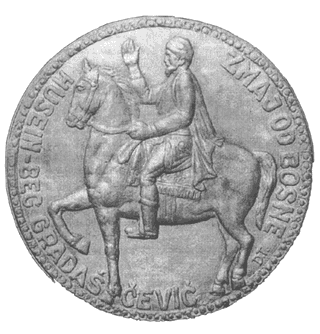  HUSEIN-KAPETAN GRADAČEVIĆ |
Posted By: Pelayo
Date Posted: 03-Aug-2005 at 13:23
|
The underappreciated National hero of Spain. Succesfully resisted the moors and started the re-conquest, creating a legacy that continues today! |
Posted By: Shahanshah
Date Posted: 11-Aug-2005 at 18:03
|
Mohammad Mosaddeq: Symbol of Iranian nationalism in 20th century and a victim of western imperialism. He nationalized the iranian oil industry from british 1951, he was ousted by cia planned coup in 1953 and replaced by the Shah.
he was tried for treason and died in house arrest. His posters were held up during the 1979 revolution against the shah, and during the US embassy hostage takeover as a symbol of payback. some say his legacy still plays a role, and they're damn right. He is an considered one of the greatest national heroes in our modern history. ------------- King of Kings, The Great King, King of the world. |
Posted By: strategos
Date Posted: 11-Aug-2005 at 18:08
|
------------- http://theforgotten.org/intro.html |
Posted By: Shahanshah
Date Posted: 11-Aug-2005 at 18:09
|
the argentinian Che Guevara: No doubt a latin american hereo. He is a glorified idol in Latin america, he was more revered than Fidel Castro.
truely a glorified latino icon:
------------- King of Kings, The Great King, King of the world. |
Posted By: Shahanshah
Date Posted: 11-Aug-2005 at 18:22
|
cyrus The Great The Persian/Median (550bc) who united the Iranian peoples and created the first world empire, the biggest empire the world had ever seen on that time, also issued the first known declaration of Human Rights, officially recognized by the UN. Cyrus died in battle in the north eastern campain. Buried in pasargadae.
his final resting place:
the words on the tomb by cyrus say: " O, man, whoever thou art and whensesoever thou comest, for I know that thou wilt come, I am Cryus, and I won for the Persians their empire. Do not, therefore, begrudge me this little earth which covers my body. " ------------- King of Kings, The Great King, King of the world. |
Posted By: Guests
Date Posted: 13-Aug-2005 at 15:29
|
Ernesto Rafael Guevara de la Serna, "Che", the revolutionary hero of Latin America...
------------- |
Posted By: strategos
Date Posted: 13-Aug-2005 at 16:32
|
May i ask for a little more detail about Guevara? ------------- http://theforgotten.org/intro.html |
Posted By: strategos
Date Posted: 13-Aug-2005 at 17:48
|
I was directing my question to Shahanshah, not you you. I would not except you to have such knowledge. Such rudeness Og! ------------- http://theforgotten.org/intro.html |
Posted By: Kenaney
Date Posted: 15-Aug-2005 at 08:50
|
Koca Seyit
Atatürk
------------- OUT OF LIMIT |
Posted By: Seko
Date Posted: 15-Aug-2005 at 09:47
|
I'll go for sports figures for now.
The man has been through alot and has shown fortitude. I heard that he trained in California at times. He would start from Santa Barbara and ride to Solvang and back three times per day (33.5 miles one way).
Koca Yusuf was born in 1857 in the village of Sumnu near Deliorman in Bulgaria. In 1885 he defeated Kel Alico at the Edirne Kirkpinar and got the Gold Belt. He defeated all the wrestle-champions in Europa and went to America to defeat Robert the Champion of America and becoming the Universal Champion of wrestling pn the 21st of May 1898. On his return to Turkey his ship sank on the 4th of June 1898 and Koca Yusuf died.
------------- |
Posted By: Guests
Date Posted: 22-May-2006 at 19:56
|
First Post. The Heroes of the Greeks are numbered, but my more recent greek heroes are Generals Dimitris Plapoutas (pic coming soon) and General Theodoros Kolokotronos (my avatar and below). Both were influential leaders of the Greeks in the Revolution against the Ottomans.  ------------- |
Posted By: milns
Date Posted: 30-May-2006 at 12:50
This is a folk tale hero Lāčplēsis (bear tearer) , he was born from a bear and had bears ears and great strenght, his strenght was in his ears. In original versin he killed some witch son with three heads, but in the end of 19 century one guy wrote an epic tale about him, so now he is known for killing black knight (german of course). In both versions of this story he died during the fight, but he took his enemy with him in river Daugava, so they bouth died. The end of the story says that one day he is going to rise again for this fight and win. And it of corse happened in 1919, when latvians defeted german and russian forces at the banks of Daugava.
 ------------- Un beidzot liecas un sašķīst viss kristīgo bars - Nav pārspējams šodien tiem zemgaļu niknums un kaujas spars! |



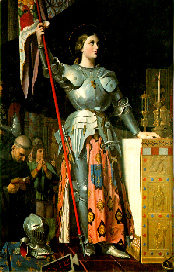

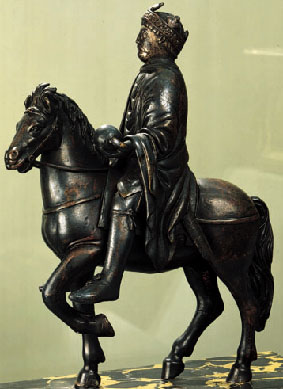


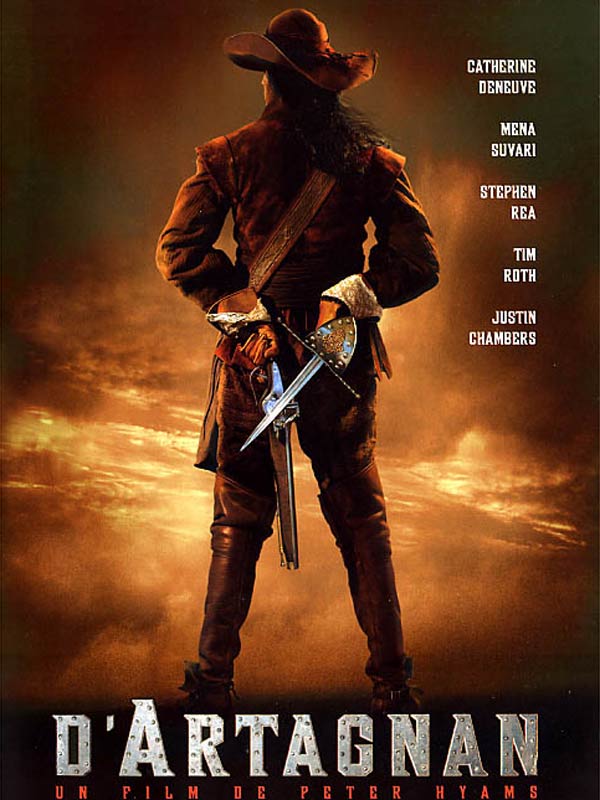

















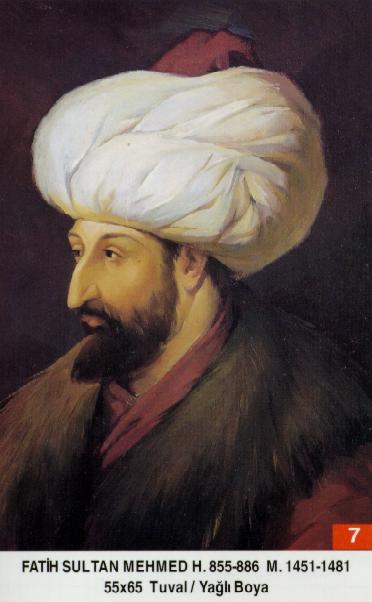















 Rauf Denktas (More info on him in the Steppes and Nomads sections under the 'Turkic Heroes')
Rauf Denktas (More info on him in the Steppes and Nomads sections under the 'Turkic Heroes') Dr.Fazil Kucuk
Dr.Fazil Kucuk Muhammad Ali Jinnah, founder of the Islamic Republic of Pakistan
Muhammad Ali Jinnah, founder of the Islamic Republic of Pakistan Osman Batur, Freedom fighter
Osman Batur, Freedom fighter



 setImgWidth();
setImgWidth();
 alt=batory0rq.jpg http://img172.echo.cx/img172/8817/batory0rq.jpg)
 /TR
/TR



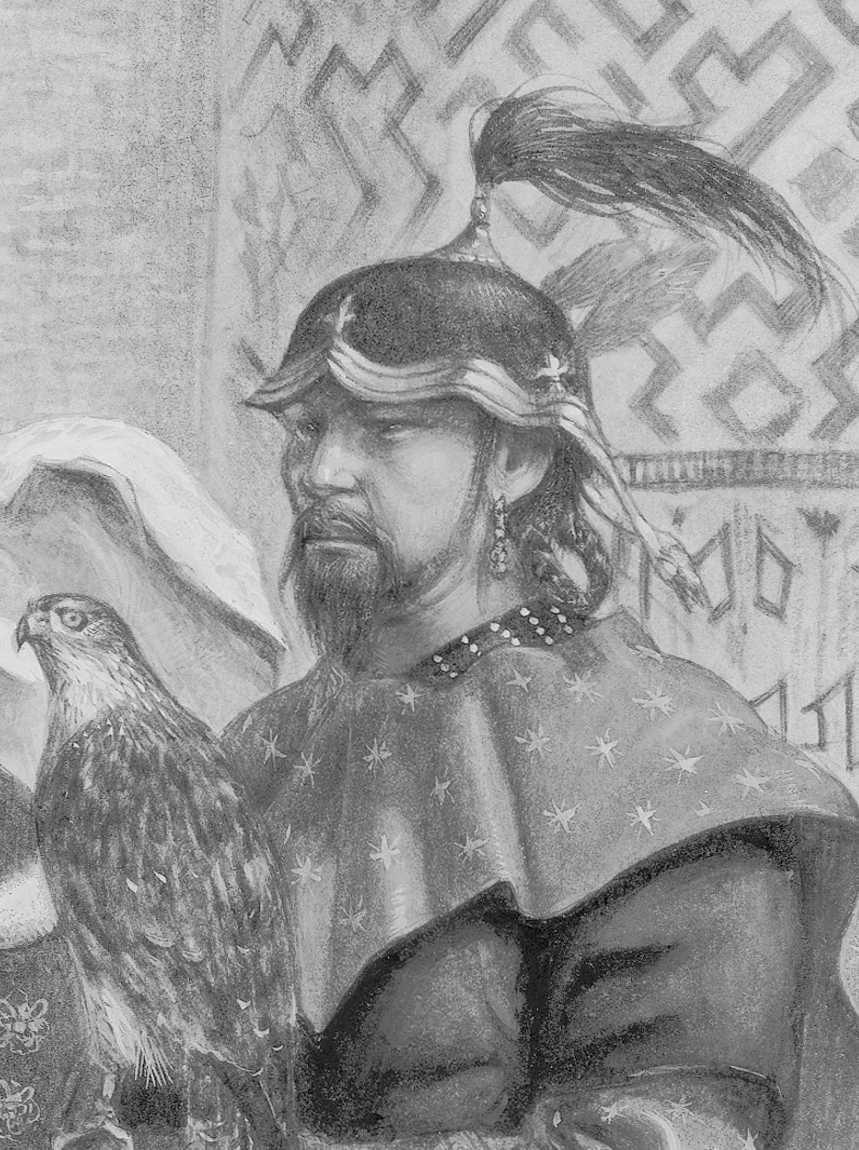




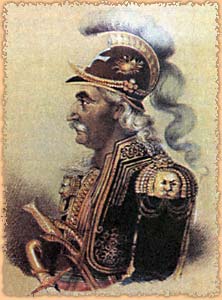
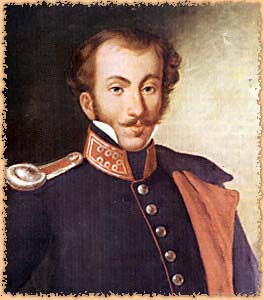



 etrobey.gif">
etrobey.gif"> 













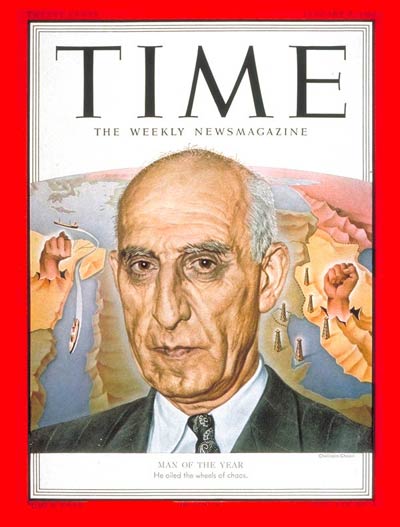



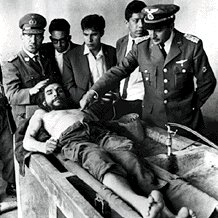



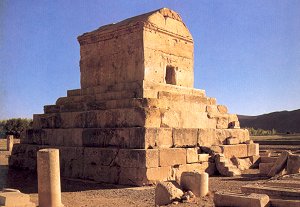





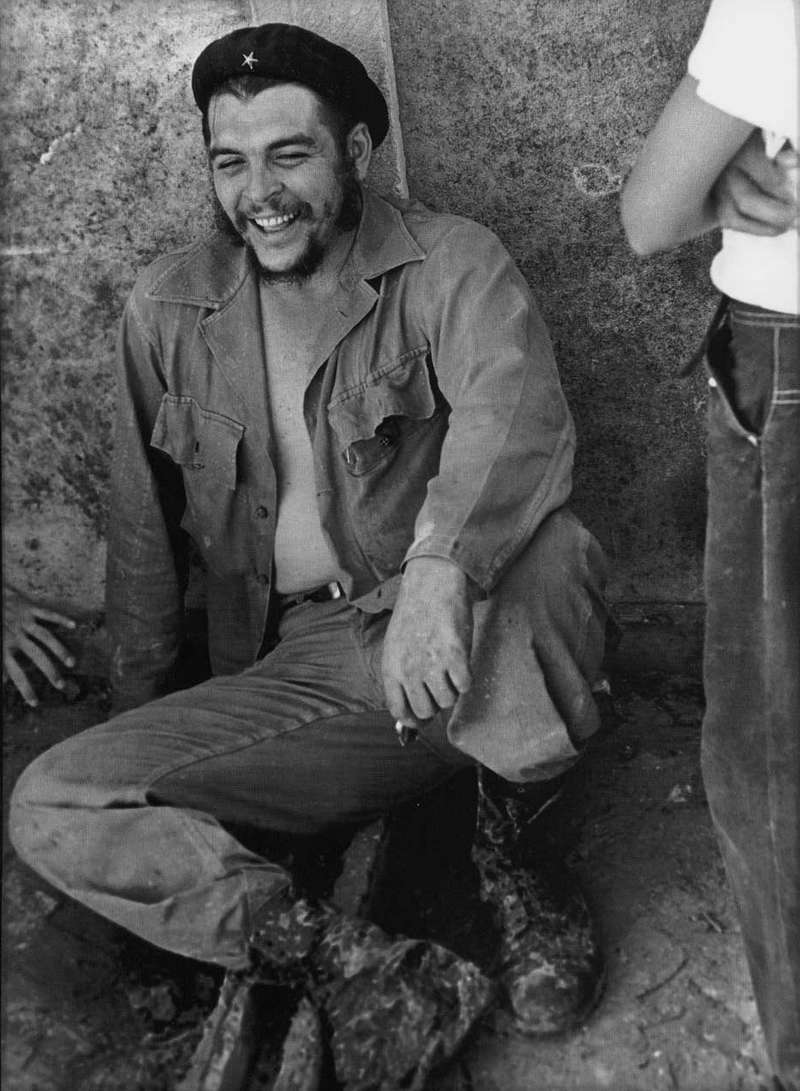




 Koca Yusuf - Turkish wrestler.
Koca Yusuf - Turkish wrestler.